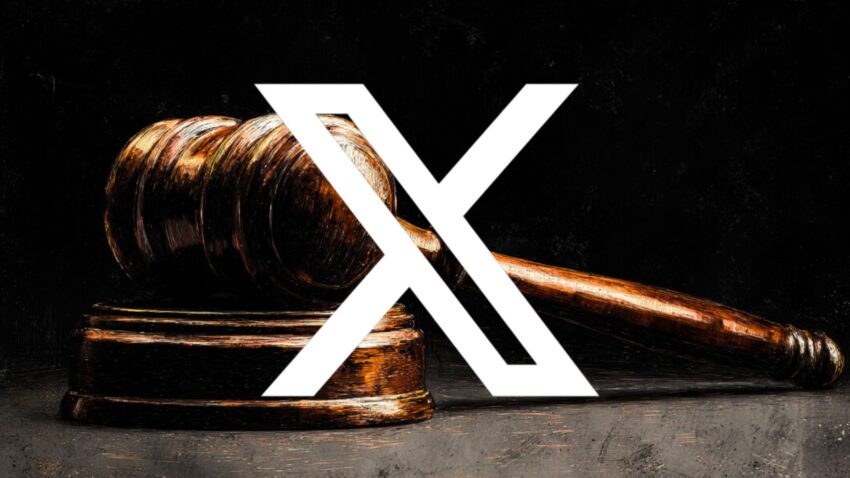If you’re tired of censorship and dystopian threats against civil liberties, subscribe to Reclaim The Net.
A federal appeals court has struck down a sweeping gag order that prevented X from notifying users when their data was sought by the US government, declaring that the order failed to meet legal standards under federal privacy law.
The D.C. Circuit Court of Appeals unanimously ruled in favor of X, finding that the lower court authorized nondisclosure orders without providing the specific findings required by the Stored Communications Act.
We obtained a copy of the opinion for you here.
The ruling addressed a case where X had been barred from revealing to users that their personal data had been subpoenaed.
According to a statement posted by X’s Global Government Affairs team, “the D.C. Circuit Court of Appeals has unanimously ruled in X’s favor to limit the U.S. government’s ability to issue gag orders.” These gag orders, as the post noted, “prevent X from notifying the public when it receives government search warrants and subpoenas.”
The conflict began when the federal government issued a subpoena demanding X turn over data belonging to two former FBI agents, Kyle Seraphin and Garrett O’Boyle.
Suspended from duty after nearly six years with the Bureau, Seraphin came forward in late 2021 to report what he saw as the politicization of FBI investigative powers, specifically the use of counterterrorism tools under the Patriot Act to monitor parents attending school board meetings.
The directive, issued via an internal email from then-Attorney General Merrick Garland, created a new designation, “EDUOFFICIALS” to track threats related to education officials. Seraphin, disturbed by the implications, disclosed his concerns to his congressional representative in what he described as a protected disclosure.
The FBI’s actions, as described by Seraphin, extended to opening investigations based on anonymous tips, some of which led to agents surveilling and interviewing parents who had merely expressed heated opinions at school board meetings. Seraphin criticized the agency for deploying federal resources against ordinary citizens for matters he believed should have remained at the local level. He argued that such practices were politically motivated and stemmed from pressure by groups like the National School Boards Association.
O’Boyle came forward as a whistleblower in May 2023 during a House Subcommittee hearing on federal government “weaponization.” He described the FBI under leadership as permeated by an “Orwellian atmosphere that silences opposition and discussion,” claiming the Bureau “destroys [whistleblowers’] careers, suspends them under false pretenses, takes their security clearance and pay with no true options for real recourse or remedy.”
He testified that the agency tasked agents with monitoring parents at school board meetings under the “EDUOFFICIALS” threat tag and that he and others believed such federal involvement was unwarranted and chilling.
The subpoena to X was accompanied by a gag order instructing the company not to disclose its existence. Seraphin and O’Boyle had previously provided whistleblower disclosures to Congress, alleging that the FBI had been “improperly targeting certain politically disfavored groups.”
Following their disclosures, both men were terminated and placed under criminal investigation, which X suggested pointed to possible government retaliation. X’s post explained that “when X wanted to transparently disclose the government’s subpoena to the public, it could not do so because the government had obtained a gag order.”
X challenged the restriction in court, contending it breached both constitutional and statutory protections. While the appellate panel ultimately avoided weighing in on the First Amendment question, it concluded that the lower court had failed to make the legally required “reason to believe” determination for each subpoena covered under the gag order. Under the Stored Communications Act, courts must justify such secrecy by showing how disclosure in each instance could result in harm.
The government had argued that its own internal findings were sufficient to sustain the order. The court disagreed, stressing that the judiciary is obligated to assess the specific risk of harm posed by disclosure.
X celebrated the decision, saying the court “vindicated X’s challenge, ruling that the gag order exceeded the government’s authority.” The company added that it “welcomes the ruling, which will help ensure transparency and accountability in the U.S. government’s efforts to investigate its citizens.”
If you’re tired of censorship and dystopian threats against civil liberties, subscribe to Reclaim The Net.
The post D.C. Circuit Strikes Down Gag Order Blocking X From Disclosing Government Data Requests in FBI Whistleblower Case appeared first on Reclaim The Net.
Click this link for the original source of this article.
Author: Dan Frieth
This content is courtesy of, and owned and copyrighted by, https://reclaimthenet.org and its author. This content is made available by use of the public RSS feed offered by the host site and is used for educational purposes only. If you are the author or represent the host site and would like this content removed now and in the future, please contact USSANews.com using the email address in the Contact page found in the website menu.





